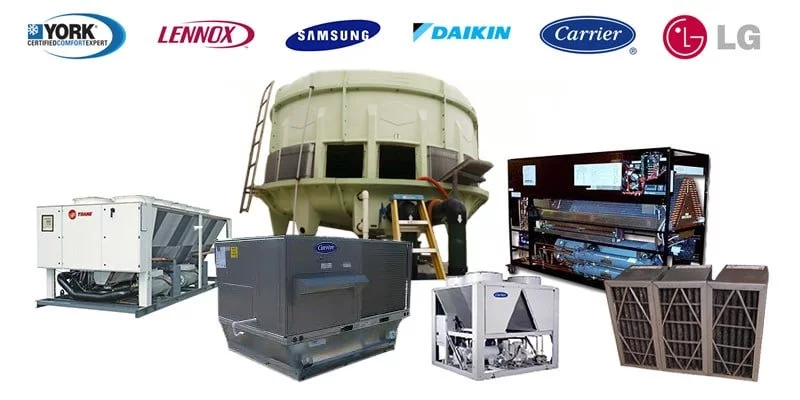Why Did We Create the HVAC Equipment Guide?
Property managers tend to a lot of things when it comes to managing real estate property. Aside from coordinating with the property owner’s wishes, they will also have to deal with collecting rent, paying taxes, keeping the property in good shape and maintaining optimal temperature by way of HVAC, among others, that is why we created this HVAC equipment guide.
Of all the tasks mentioned, maintaining HVAC is one of the most difficult duties a property manager must deal with. Here’s what property managers should know about HVAC equipment.
HVAC, or Heating, Ventilation and Air Conditioning is a vital system which circulates clean, fresh air into living spaces, and maintains optimal temperature within to keep the environment comfortable. Needless to say, keeping your HVAC operating in excellent order is vital for property managers in commercial and residential properties alike.
Some of the most common HVAC issues include tenant complaints of hot or cold spots in the property, air quality and humidity problems, water leaks and other HVAC malfunctions (leading to possible property damage), the system breaking in inopportune times and the length of wait for repairs.
When HVAC complications arise, property managers should have a guide at hand to see which system components or parts are affected, no matter the HVAC type or brand.
Ductwork
Inconsistency with the airflow usually leads to defective ductwork in the form of cracked or leaking channels. Tenants might complain about odd, rattling noises or a strange whooshing sound due to ductwork coming in loose or a broken fan. In this case, check for the trouble spot and seal the leak right away.
Condenser Coils
Evaporators and condenser coils need regular maintenance and cleaning once in every 6 months to keep it functioning at an optimal rate. Unclean dampers might lead to the unit unable to fully utilize the outside air to bring the cooler air inside, or may overload the cooling coil with the hot outside air.
Drain Line
Drain lines are the ones that lead condensation and excess water away from the HVAC system. These tubes gather algae and dirt over time and could potentially get clogged. When this happens, the excess water goes back to the source and into the drain pan, causing leaking and potential water damage. Property managers should check and clean drain lines periodically to prevent this from happening.
Circuit Breaker
A fuse acts as the first line of defense in the protection of sensitive electrical equipment, and are usually found where the evaporator coil is. When the HVAC system shuts down, the first thing to do is to check the circuit breaker for any blown fuses.
Capacitors
An HVAC system has two capacitors- start and run. If any of the two burn out, the unit will stop and an immediate replacement is needed.
Blower
Small pieces of debris and dirt inevitably get stuck within an HVAC’s blower assembly, which can cause it to clog. The capacity to maintain an optimal temperature gets impaired, and residents may start complaining about the air not circulating. These blowers will need to be professionally cleaned at least once a year to ensure operation at full strength.
Air Filters
The circulating air in a building or a residence passes through a series of air filters that take dust and allergens before introducing it back to the indoor environment. These filters also get invariably clogged, therefore the air quality is greatly reduced over time. When tenants complain about an unusual odor coming from the HVAC, these filters may be the culprit. Dirty air filters, gas leaks, overheating parts, debris on the heat exchanger or condensed stagnant water can also be probable causes. Replace the filters every few months as preventive maintenance.
Refrigerant
Air conditioning units make use of refrigerants for a controlled environment within any room or space. Refrigerant levels must be checked periodically because these substances eventually run low and cause sub-par cooling capabilities. The property manager should also inspect for possible leaks since ac units are meant to be a sealed system, and a leak could evaporate as hazardous gas.
Control Calibration
The control panel should also be inspected for proper humidity and set point temperatures. A blistering or chilly environment can cause damage to the surroundings, including the painting, furniture, wood moldings and expensive decoration, costing thousands of dollars in the process. What’s more, uncontrolled humidity brings about air quality problems such as the improbably growth and eventual spread of illness-causing pollen, mold, virus and bacteria into the environment.
System Capacity
Capacity is a vital component that must be carefully considered whether the property is under remodeling, new construction or during partial replacements. A too-large HVAC system can be costly in the long run, while a too-small unit may not work efficiently to either heat or cool the indoor environment.
Whether managing a large industrial or commercial complex, a series of apartment buildings or a few house rentals, property managers must include HVAC systems into their responsibilities to maintain optimal property operation and ensure a longer HVAC equipment life. This guide should give a feeling of how important HVAC systems are in terms of potentially saving huge property maintenance costs by up to 40%, and in making essential HVAC units last from anywhere to 20 years or more.
We have also written a comprehensive commercial HVAC guide for building owners and commercial property managers.







